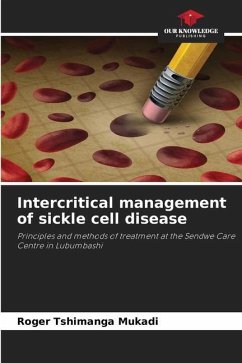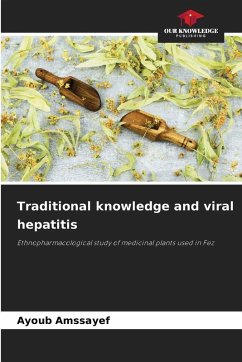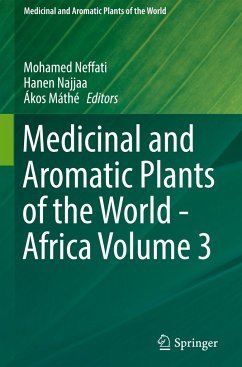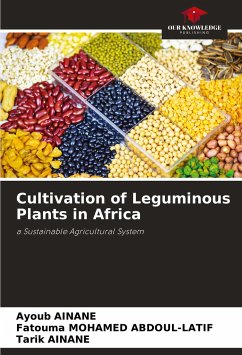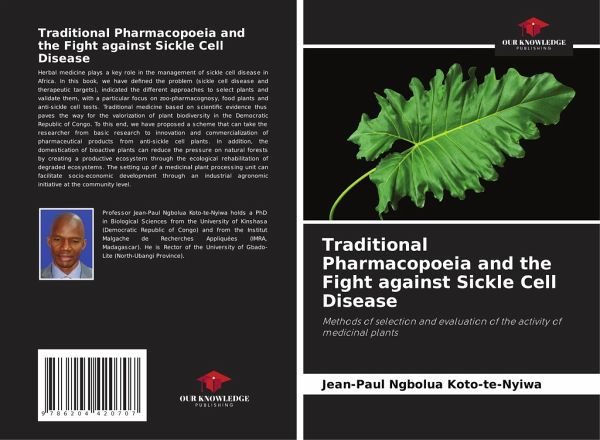
Traditional Pharmacopoeia and the Fight against Sickle Cell Disease
Methods of selection and evaluation of the activity of medicinal plants
Versandkostenfrei!
Versandfertig in 6-10 Tagen
27,99 €
inkl. MwSt.

PAYBACK Punkte
14 °P sammeln!
Herbal medicine plays a key role in the management of sickle cell disease in Africa. In this book, we have defined the problem (sickle cell disease and therapeutic targets), indicated the different approaches to select plants and validate them, with a particular focus on zoo-pharmacognosy, food plants and anti-sickle cell tests. Traditional medicine based on scientific evidence thus paves the way for the valorization of plant biodiversity in the Democratic Republic of Congo. To this end, we have proposed a scheme that can take the researcher from basic research to innovation and commercializat...
Herbal medicine plays a key role in the management of sickle cell disease in Africa. In this book, we have defined the problem (sickle cell disease and therapeutic targets), indicated the different approaches to select plants and validate them, with a particular focus on zoo-pharmacognosy, food plants and anti-sickle cell tests. Traditional medicine based on scientific evidence thus paves the way for the valorization of plant biodiversity in the Democratic Republic of Congo. To this end, we have proposed a scheme that can take the researcher from basic research to innovation and commercialization of pharmaceutical products from anti-sickle cell plants. In addition, the domestication of bioactive plants can reduce the pressure on natural forests by creating a productive ecosystem through the ecological rehabilitation of degraded ecosystems. The setting up of a medicinal plant processing unit can facilitate socio-economic development through an industrial agronomic initiative at the community level.



